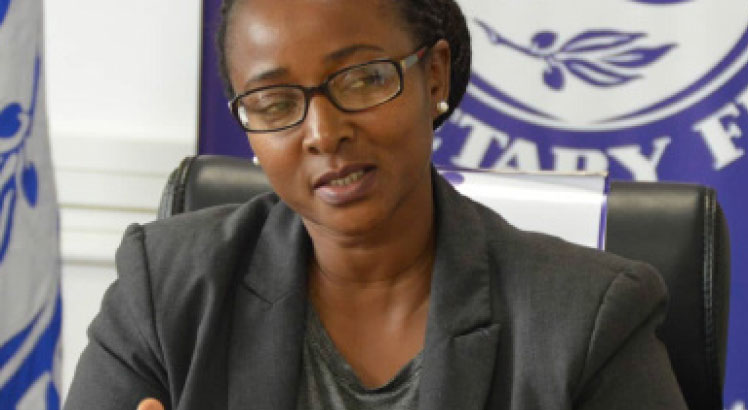More needs to Be done—IMF
The International Monetary Fund (IMF) says Malawian authorities still need to do more to rescue the country from economic challenges to complement the $88.372 million (about K91 billion) Rapid Credit Facility (RCF) it has extended.
Briefing the media in Lilongwe yesterday on the approval of the RCF under the Food Shock Window to help Malawi address urgent balance of payment needs related to the global food crisis, IMF resident representative Farai Gwenhamo said the country needs to resolve economic challenges such as rising inflation rate and foreign exchange shortage which has triggered fuel importation challenges.
She said: “This [RCF] is just one part of a set of what needs to happen to turn around the Malawian economy. The $88 million will help towards addressing some of the financing gaps.

the economy to recover
“That said, there are other things that need to take place for the economy to recover. One of those is the authorities’ own adjustment programme that they committed to under the PMB [Programme Monitoring with limited Board involvement].
“There is also a need for the international community to support and then there is also the debt restructuring process.”
Gwenhamo said the clinching of the RCF does not invalidate the country from seeking the Extended Credit Facility (ECF), but Malawi has to meet a set of prescribed conditions, including building foreign exchange reserves and aligning the foreign exchange rate.
She said although the repayment for the RCF starts in five years’ time, Malawi Government can ask for ECF consideration at any time.
Gwenhamo said: “The authorities do have the right to request to switch from the PMB to upper credit tranche programme if the conditions permit.
“There are no strict rules on when that transition can happen. Of course, it depends on our engagements with the authorities and the progress that is being made in the implementation of the PMB.”
RCF, an emergency funding, is disbursed through PMB which is administered at staff level and not board as the ECF.
Economists credit ECF as a more reliable programme that provides financial assistance to countries with balance of payments problems.
Meanwhile, former minister of Finance Goodall Gondwe said in an interview yesterday the country faces a daunting task to turn the tables and regain the ECF which the Tonse Alliance administration cancelled in 2020.
He said it will take time for the country to meet the IMF conditions considering the foreign exchange shortages and soaring inflation.
Gondwe, a former IMF director for Africa Division, said: “The most important thing to focus on is how we manage our expenditures. Let us not cheat ourselves that we will get there quickly. However, I am hopeful that we will get there.”
The IMF said it approved the RCF following food insecurity facing the country due to “multiple tropical storms, below-average crop production, and increasing prices for food and agricultural inputs such as fertiliser and seed”.
Reads the IMF statement announcing the deal: “As a result, about 20 percent of the population is projected to be acutely food insecure during the upcoming 2022/23 lean season (October 2022-March 2023), or more than twice as many people as in 2021.”
In the past one year, Malawi has been seeking a new ECF after cancelling the previous arrangement in September 2020 in search of a fresh start barely two months after the Tonse Alliance administration led by President Lazarus Chakwera ascended to power.
The administration found what the IMF said were serious episodes of misreporting at the Reserve Bank of Malawi, particularly on foreign exchange reserve position figures whose clean up alongside debt restructuring the IMF has put as pre-conditions for a return to a formal economic programme.
Through the cancellation, Malawi forfeited $70 million and total access under the cancelled three-year ECF was about $145 million, including the initial resource envelope of about $112.3 million approved in April 2018 plus $40 million under Augmentation of Access approved in November 2019.





